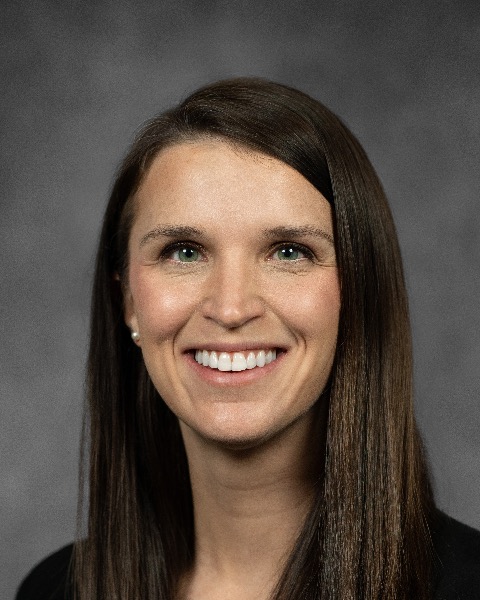Children with Chronic Conditions 1
Session: Children with Chronic Conditions 1
494 - Everyday Discrimination in Medical Settings for Families of Children with Special Healthcare Needs
Sunday, April 27, 2025
8:30am - 10:45am HST
Publication Number: 494.4655
Stefanie G. Ames, University of Utah School of Medicine, Salt Lake City, UT, United States; Elizabeth Patterson, University of Utah School of Medicine, Orem, UT, United States; George Verdelis, University of Wisconsin School of Medicine and Public Health, Madison, WI, United States; Amy Houtrow, University of Pittsburgh School of Medicine, Pittsburgh, PA, United States; Christina Zigler, University of Pittsburgh School of Medicine, Pittburgh, PA, United States; Huong D. Meeks, University of Utah School of Medicine, Salt Lake City, UT, United States; Danielle Gerber, University of Wisconsin School of Medicine and Public Health, Madison, WI, United States; Amanda K. Gatewood, University of Wisconsin-Madison School of Medicine and Public Health, Madison, WI, United States; Ryan Coller, University of Wisconsin School of Medicine and Public Health, Madison, WI, United States

Stefanie G. Ames, MD, MS (she/her/hers)
Associate Professor
University of Utah School of Medicine
University of Utah Health
Salt Lake City, Utah, United States
Presenting Author(s)
Background: Children with special healthcare needs (CSHCN) and their families frequently interact with healthcare systems and are at risk for experiencing discrimination during these visits. The lack of data describing experiences of discrimination in medical settings for CSHCN prevents greater attention to this critical experience.
Objective: This study aims to quantify occurrences of discrimination in a national cohort of CSHCN and to determine risk factors associated with experiencing discrimination in a medical setting.
Design/Methods: This cross-sectional study conducted within the FAMILY CIRCLE cohort of caregiver-child dyads enrolled from 9 US sites between 10/2023-5/2024. Child inclusion criteria were ages of 0-15.5 years with ≥1 Complex Chronic Condition. Participants completed the Everyday Discrimination Scale (EDS) adapted for medical settings. Surveys included child and caregiver demographics. Child disability was defined by responding “a great deal” to the extent to which their conditions or problems affects their ability to do things. Univariate summary statistics characterized participant characteristics and the occurrence of any reported discrimination. A multivariate logistic regression estimated the odds of discrimination by patient and caregiver characteristics.
Results: Of 673 caregivers-child dyads with EDS data, 401 (59.5%) reported experiencing discrimination in a medical setting. The median (IQR) EDS for medical settings score was 9 (7-14) with range 7-28 where higher is worse (Table 1). The most common report on the EDS was “You feel like a doctor or nurse is not listening to what you were saying”, reported by 365 (54.6%) caregivers. Approximately one-third of caregivers reported their child’s physical disability as the reason for discrimination (n=129, 32.2%). In multivariate models, child disability was associated with an aOR of 2.2 (95% CI 1.5-3.2) of experiencing discrimination in a medical setting compared to those without disability. Caregiver self-reported disability (compared to none) was associated with an aOR of 2.3 (95% CI 1.1-4.8) of experiencing discrimination. Self-reported race of white was also associated with increased discrimination (Table 2). In this sample, caregiver age, preferred language, and insurance type were not associated with discrimination.
Conclusion(s): Discrimination in medical settings is reported by nearly two out of three CSHCN caregivers when seeking care for their child, and nearly twice as common when caregivers or children have disabilities. Reasons for discrimination were varied, but over 30% attributed discrimination to their child’s disability.
Summary of the Everyday Discrimination Scale for Medical Settings in the Family Circle Cohort
Table 1 Discrimation Summary.pdf
Multivariable model of caregiver and child characteristics associated with discrimination in a medical setting
Logistic Regression Discrimination copy.pdf
Summary of the Everyday Discrimination Scale for Medical Settings in the Family Circle Cohort
Table 1 Discrimation Summary.pdf
Multivariable model of caregiver and child characteristics associated with discrimination in a medical setting
Logistic Regression Discrimination copy.pdf

